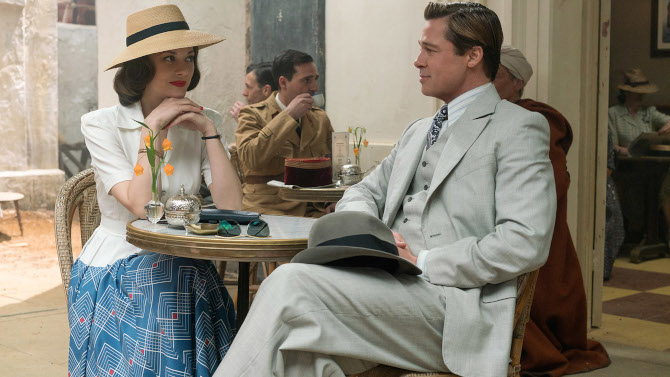
Déjà vu Dalliance
Channeling the mesmeric movies churned out by the studio system back in the 1930s and 40s, Allied (2016), directed by Robert Zemeckis, channels the likes of Morocco, Casablanca, Across the Pacific, Gilda, To Have and Have Not, and numerous others – attempting to find a spark from the classic themes of melodrama, romance, suspense and the epic nature of the annals of the cinematic past, with quite successful results. Set the year Casablanca and Across the Pacific were released – 1942, the story in fact starts in Morocco, with recently parachuted in Canadian spy Max Vatan (Brad Pitt) meeting up with another undercover agent, Marianne Beauséjour (Marion Cotillard), who will be pretending to be his wife.
-
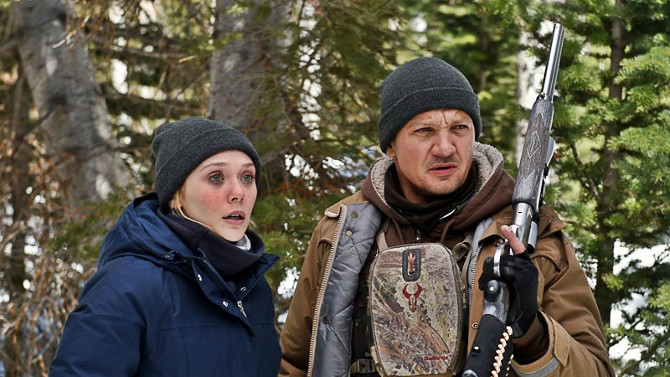
Without Reservation
Wind RiverSeptember 5, 2017Sending a cold brisk current down the viewers’ spine, Taylor Sheridan’s Wind River is a darkly piercing mystery crime thriller with an old school western vibe. Providing the film with a unique spin much like another story he penned, Hell or High Water (which earned Sheridan an Academy Award nomination), the motion picture has the feel of a traditional western updated with modern topics and themes. Like a John Ford epic, you’ll find a posse searching for answers, characters chock full of bravery, a sort of wild lawlessness, and picturesque yet harsh locales, though this is not set in the blistering deserts of the nineteenth century wild west, but rather on an Indian reserve in present day Montana, where the chilling wind blows a substance no less forgiving – snow.
-
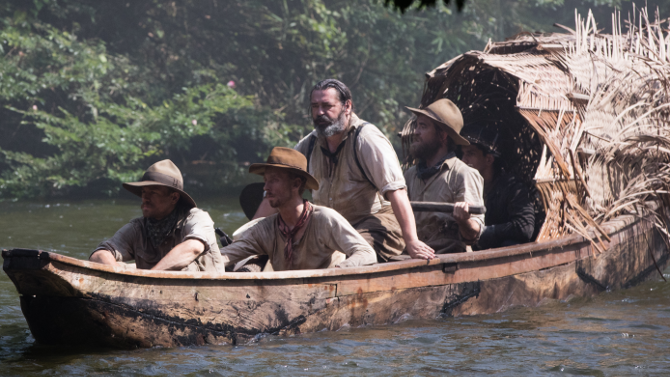
Jungle Love
The Lost City of ZJuly 18, 2017Following in the vein of other epic adventure tales of the past, like The Treasure of the Sierra Madre, Lawrence of Arabia, ‘Aguirre, the Wrath of God’ and Apocalypse Now, writer/director James Gray’s adaptation of David Grann’s The Lost City of Z is a dangerously grand journey into the mysterious jungles of the Amazon. The 2017 feature is based on real life British explorer Percy Fawcett (Charlie Hunnam) – an Indiana Jones type, who, at the start of the narrative, is a military man with low standing due to his father’s previous actions (despite the fact Percy never met him). Looked down upon by the wealthy upperclassmen of the military, he is sent to the Royal Geography Society, where they try to persuade him to survey the border lines between Bolivia and Brazil (as the ever more desirable rubber plantations are leading towards war – the two governments have accepted the British institutions offer to do the job). Though wary, the Society members hint that this could be the perfect way to restore his good name, and Percy decides to take the position.
-
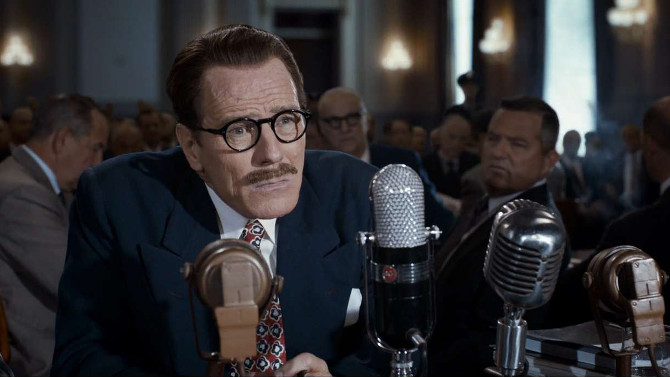
A Flourish of Trumpets for Trumbo
TrumboJuly 7, 2017Though today, The Hollywood Ten sounds like a modern take on a superhero movie, for those who know the film history, it has a much darker meaning. Referencing the ten filmmakers who were subpoenaed for being possible Communist dissidents, thought to be subverting the hearts and minds of the American people, they refused to answer questions directly. Focussing on one of the ten, 2015's Trumbo follows the famed screenwriter through the trials and tribulations of this tumultuous time in American history. Directed by Jay Roach (Austin Powers trilogy; Meet the Parents/Meet the Fockers), Dalton Trumbo (Bryan Cranston) is a highly intelligent yet cantankerous writer, one of the best in the film industry, circa 1947. An ardent Communist who believes in better working rights and pay for those in Hollywood (as well as many other things), he is married to Cleo (Diane Lane), who, despite her soft spoken nature, is in many ways the strong backbone of the family. They have three children.
-
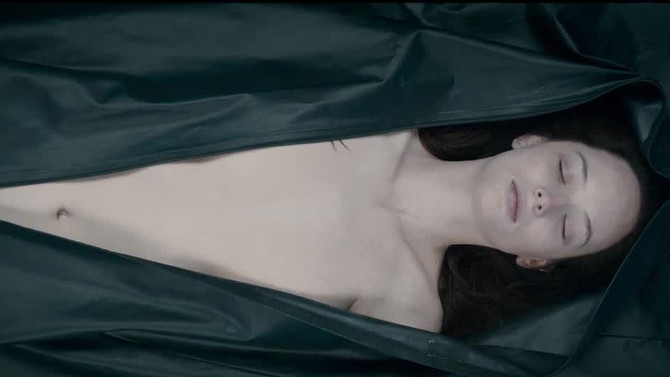
Dissecting Jane Doe
The Autopsy of Jane DoeJune 27, 2017Perhaps the beginnings of a new sub-genre of horror, André Øvredal’s 2016 offering, The Autopsy of Jane Doe, follows up the similarly set The Corpse of Anna Fritz with another claustrophobic, morgue-centric tale. Perhaps we could drop the ‘rue’ from the classic Edgar Allen Poe tale and call them "Murders in the Morgue". With a cleverly concocted set up, the first half of the film toys with us, introducing not only the main characters, but the little threads that will come into play later on. Beginning with a gruesome murder scene (dead bodies are scattered throughout a house), Sheriff Burke (Michael McElhatton – Roose Bolton in Game of Thrones) is stymied when he discovers a half buried body of a young woman – the only one with not a thing wrong with it (seemingly). In a bizarre twist, it seems like those murdered were trying to escape the abode – and that no one broke in.
-
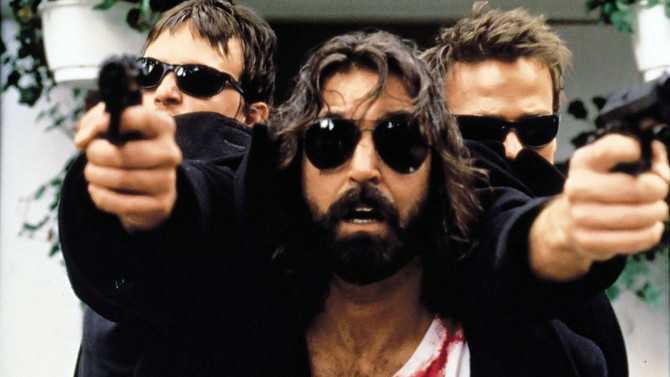
The Saints are Coming. . .
The Boondock SaintsJune 23, 2017If you’ve ever wondered what it would look like for a toilet to be dropped onto a mobster’s head from approximately five stories up, then 1999's Boondock Saints, written and directed by Troy Duffy, may be for you. A rare movie that has been absolutely obliterated by most critics yet loved by an extremely fervent cult following, it is clearly not for everyone. The leads are Catholic Irish American twins, Connor (Sean Patrick Flanery) and Murphy MacManus (Norman Reedus), a pair of impoverished Bostonians who work at a meat packing plant. Friends with a low level Italian mob runner, Rocco – aka ‘Funny Man’ (David Della Rocco), the triumvirate are enjoying a few pints on St. Patrick’s Day when some Russian thugs come into the bar and unceremoniously tell them that it is closed and now under their control. The goons are overrun by the patrons, embarrassed at their own game. It does not take long for the Russians to track down their combatants from the previous night, looking to respond by putting a few bullets into them. The twins are somehow able to fight them off (killing them in the fray), but panic and flee the scene.
-
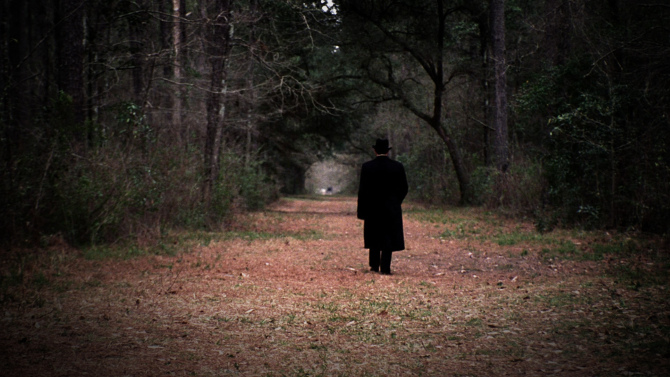
In the Cross Hairs
Miller's CrossingJune 11, 2017The Coen brothers’ third feature film, 1990's Miller’s Crossing, once again pays tribute to the hard boiled noirs of old, much like their first motion picture, Blood Simple.. Set during the Prohibition Era, the story draws us into the beginnings of an all out gang war. The unofficial king of the city is aging Irishman Leo (Albert Finney), a well connected guy who often leans on his right hand man, Tom Reagan (Gabriel Byrne), for advice and leadership amongst his pack of goons. Tom is a degenerate gambler going through a rough patch.
